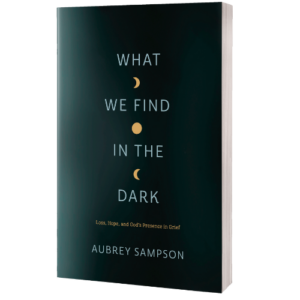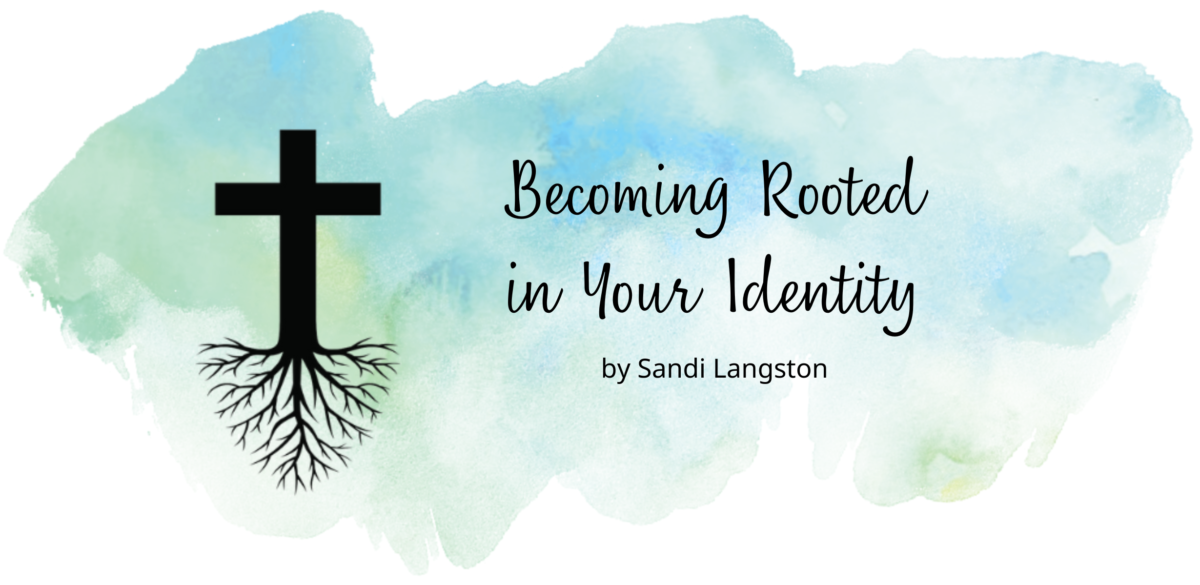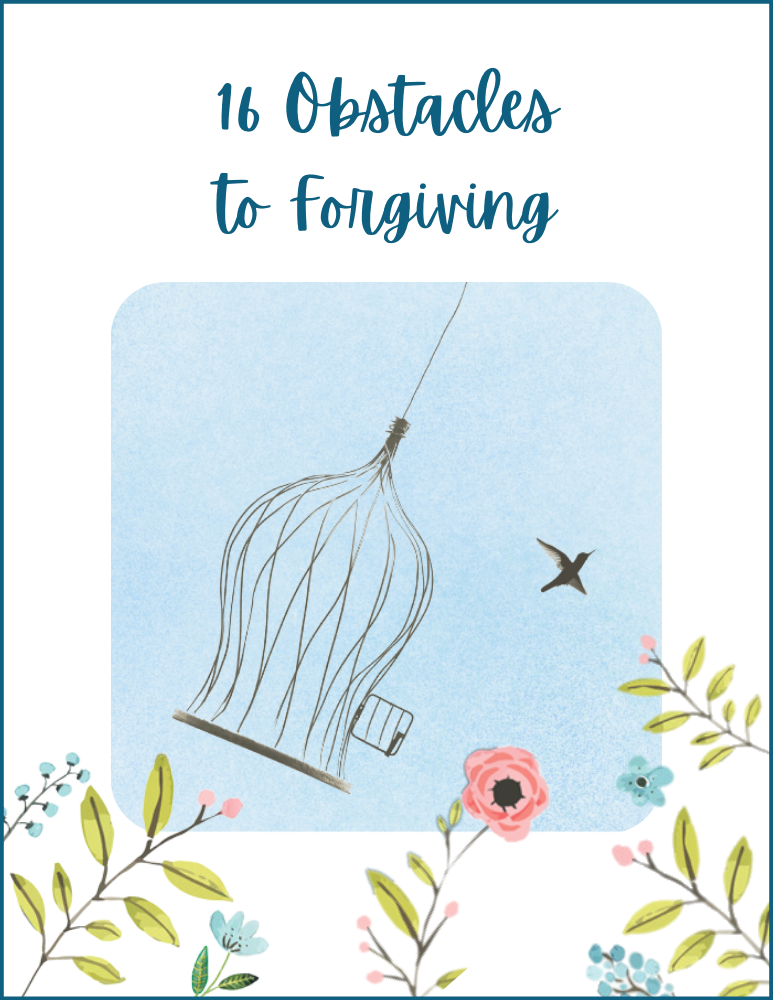Grief isn’t optional; it’s inevitable and it can be debilitating. We discover that we’ve lost so much more than a loved one. We may feel utterly alone and wonder whether we will ever be okay again.
“Grief launches us on a strange new orbit, and for now, we’re getting our bearings while the earth reels in an entirely different direction than we were used to.”

Aubrey Sampson’s Story
Aubrey Sampson offers comfort and hope to those experiencing grief over the loss of a loved one. In her book, What We Find in the Dark, Aubrey writes about losing her best friend of over 20 years to cancer. Aubrey’s journey of loss and grief is gripping, beautifully told, and relatable even if you have never lost someone you love. Through the honest sharing of her own experiences, the book evokes tears for her loss as well as our own.
By simply telling her story, Aubrey comes alongside those who are grieving, and she comforts, guides, helps, and gently exhorts. (I find it curious to note that last sentence could be said of the Holy Spirit’s role in our lives.)
Comfort and Hope
Comfort comes from knowing that others have been in this place before. They have felt these feelings, wrestled with these doubts, and they too have neglected reading their Bibles for a long time. Though every experience of grief is unique, we are not so alone as we feel.
Aubrey’s open sharing serves to normalize many of the experiences of grief we may otherwise question in our own experience. Many of her stories leave us exhaling a sigh of relief. We are not abnormal – our (unwanted) experiences are simply part of grief.
Hope comes precisely because others have felt the way we do in grief, and they have journeyed on. From their stories comes the flicker of hope that though the night is long, it will not always be as dark. They have found treasures in the dark, and we may too.
Lights in the Night
Aubrey also draws our attention to star-like lights that help us orient ourselves along the seemingly aimless path of grief. I love that she reassures us that we are not moving too slowly. She makes it clear that grief is a long, dark night, but not without glimmers of light, and we can see them if we will look for them.
“The darkness makes us lean in and listen, the way a hushed silence does… The darkness demands we pay attention.”
Her personal insights about God’s hiddenness and the things that keep us “tethered to God at midnight” are priceless for those wondering why they can no longer feel God’s presence. Aubrey shares her insights about anger and wrestling with God – a natural part of many people’s journeys of grief. She also writes about her ambivalence toward making new friendships again – something which requires the courage to grieve again.
Healing for the Heart
Aubrey’s writing is beautifully crafted, with vivid metaphors and well-chosen words. Her prose reads like poetry, which touches the soul in an indelible way. The book is easy to read in that it is packed with story after story.
Thanks to Aubrey, I feel better prepared to face the inevitable grief that comes with living in a fallen world. I also have a better idea of how to offer comfort and hope to those in grief.
May you remember, when the night of grief descends on your soul, that you are not alone in your aloneness, and though the journey is long, there are treasures in the dark.




